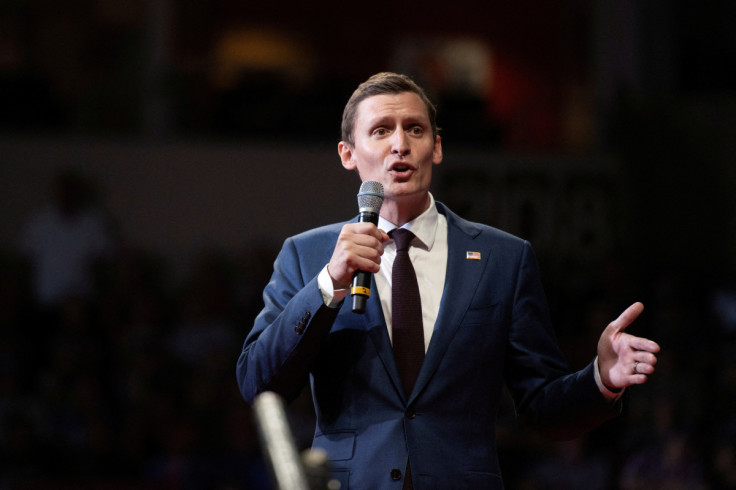Outside Allies Help Republican U.S. Senate Candidates Close Gap With Democrats

Republicans in the tightest U.S. Senate races are getting help from deep-pocketed allies who are unleashing a late advertising blitz, potentially neutralizing their Democratic rivals' fundraising advantage heading into the Nov. 8 midterm elections.
Led by a fundraising group tied to Republican Senate leader Mitch McConnell, dozens of conservative organizations reported spending more than $104 million in September to help Republican candidates in seven Senate races widely seen as competitive, a Reuters analysis of federal disclosures found.
Democrats' allies in the same races - spread across Arizona, Georgia, North Carolina, New Hampshire, Nevada, Pennsylvania and Wisconsin - have reported spending about $23 million last month, less than a quarter of the sum reported by Republican allies.
Democratic campaigns have reported having bigger bank accounts in six of the seven states, ranging from New Hampshire where U.S. Senator Maggie Hassan had about $7 million more on hand than Republican challenger Don Bolduc in late August, to Arizona where U.S. Senator Mark Kelly had a $23 million advantage over Republican Blake Masters in mid-July. In Wisconsin, Republican U.S. Senator Ron Johnson had a $1 million advantage over Democrat Mandela Barnes in mid-July.
The outside spending - which has overwhelmingly funded ads - could make a difference in the final five weeks before the elections, when Republicans are favored to win control of the U.S. House of Representatives but the Senate is up for grabs.
Any of the seven races could tip the balance of power in the Senate, currently split 50-50 between Democrats and Republicans, with Democratic Vice President Kamala Harris holding the tie-breaking vote.
In Pennsylvania, more than $20 million in recent spending by Republican allies has fueled a barrage of attack ads against Lieutenant Governor John Fetterman, accusing him of being "dangerously liberal on crime."
"They have been ubiquitous," Chris Borick, a political scientist at Muhlenberg College in Allentown, Pennsylvania, said of the anti-Fetterman ads.
MONEY MATTERS
The advertising push could be hurting Fetterman's standing among elderly voters, a demographic with a high turnout rate in midterms that also watches a lot of television, said Borick, who runs the college's polling institute.
"Could the money matter in this and the other races? I think the belief is increasingly that it can," Borick said.
A Muhlenberg College poll conducted Sept. 13-16 showed Fetterman up 49%-44% over Republican celebrity doctor Mehmet Oz. The gap was within the poll's margin of error. But among voters age 65 and older, Oz had a commanding 54% to 40% lead.
Fetterman's campaign reported having $5.5 million in the bank at the end of June, compared to Oz's $1.1 million.
The Democrat's big campaign account helped him respond with his own television ads defending his votes on Pennsylvania's Board of Pardons to give some people in prison a "second chance" by commuting their sentence.
Across the seven races, the Republican advantage in recent spending by allies reflects in part wealthy donors seeking to even out the financial stakes.
In Arizona, Masters's allies - including a group funded by his old boss and Thiel Capital founder, billionaire Peter Thiel - reported directly spending more than $12 million to support his campaign or to oppose Kelly. Kelly's allies reported spending about $6 million to help his cause.
"Outside groups are making up the difference," said Aaron Scherb, a lobbyist on campaign finance and election issues for Common Cause, a watchdog group that advocates for increasing transparency in campaign finance.
Under U.S. campaign finance rules, outside groups can spend unlimited amounts supporting candidates as long as the outlays are not coordinated with campaigns.
Much of outside spending comes from Super PACs, funding groups that include the McConnell-tied Senate Leadership Fund and the Everytown for Gun Safety Victory Fund, which advocates for tighter gun laws and has taken big checks from wealthy Democratic donors.
Super PACs face no limits on the size of contributions they can take from individuals or from other groups.
The Senate Leadership Fund, which has reported spending more than $60 million in September helping Republicans in the seven competitive Senate races, has received contributions of at least $10 million since December from hedge fund billionaire Ken Griffin, according to the Super PAC's financial disclosures.
The groups behind the recent outside spending have yet to file comprehensive financial reports for September but are required by the Federal Election Commission to disclose large independent outlays soon after making them.
A notable absence in the Republican-aligned spending blitz is former President Donald Trump.
Trump's Save America fundraising group has amassed more than $90 million after taking in close to one-fifth of online fundraising reported in the current election cycle by Republican online donation portal WinRed.
While Trump has held rallies supporting Oz and other Republicans, he has yet to report spending any money on ads supporting congressional candidates.
(Editing by Deepa Babington)
© Copyright Thomson Reuters 2024. All rights reserved.











